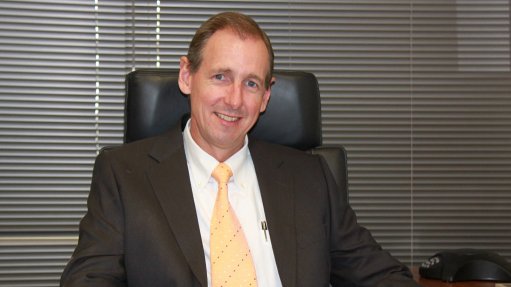
WesBank CEO Chris de Kock
The Nigerian Automotive Council (NAC) and WesBank this week signed a memorandum of understanding (MoU), which should see the South African vehicle and asset financier enter the Nigerian new vehicle finance market in 2015.
“We have an optimistic objective that we can write our first deal in March,” WesBank CEO Chris de Kock told Engineering News Online on Thursday.
The signing of the MoU followed eight months of talks, he added, and flowed from the Nigerian government’s aim to grow its fledgling vehicle assembly industry.
In order to stimulate sales of locally made vehicles over popular imports, the West African country had to provide affordable mobility to its domestic market, explained NAC director-general Aminu Jalal during this week’s South Africa Automotive Week, in Midrand.
Unconfirmed figures put the Nigerian official new car market at a mere 50 000 vehicles a year, but with grey new vehicle imports and second-hand imports at between 375 000 and 450 000 units a year.
“The Nigerian government realised that in order to create a market for its own vehicles, the country had to have vehicle finance solutions available to a large portion of the public, at a reasonably affordable price,” noted De Kock.
“They then went looking for a partner, and they found us.”
The MOU WesBank signed with the NAC applied only to vehicles assembled in Nigeria.
WesBank had experience in six countries outside South Africa, namely Mozambique, Swaziland, Zambia, Namibia, Lesotho and Botswana.
WesBank’s Nigerian business would be funded from an increase in tariffs on imported passenger cars, already implemented this year, said De Kock, with WesBank’s parent, FirstRand Bank, as well as various market instruments, providing the balance.
“This will allow us to put forward a product that is available at a completely different rate than what is currently available in that market.”
He said Nigerian banks were highly risk averse, largely offering credit at high interest rates to high net-worth, low-risk individuals.
De Kock said WesBank’s challenge was “to find a way” to provide the finance required.
“Nigeria’s credit market is quite underdeveloped. So we have to use our developing country expertise around building a process and credit scorecard that can bring a fairly good number of customers onboard.”
De Kock said a WesBank team had already spent “substantial time” in Nigeria, looking at legal aspects, the dealership environment and credit bureaus, and developing a high-level plan for WesBank’s entry into the country.
Following the signing of the MoU, the next stage was to put funding in place, followed by a process to develop the capability “to build the systems, scorecards and processes to run a vehicle finance business in Nigeria. We need the necessary licences and we need to set up the necessary infrastructure”.
“We are in the process to appoint a full-time CEO.”
De Kock emphasised that WesBank would not rush into Nigeria.
“We do not have the intention to barge in there and sign bilions of rands of business. We are going to grow slowly and carefully. But, the MoU gives us a great opportunity to get our feet on the ground and test the Nigerian market.”
De Kock said while the MoU with the NAC applied only to vehicles assembled in Nigeria, it was WesBank’s intention to ultimately also finance corporate assets and vehicles imported into the West African country.